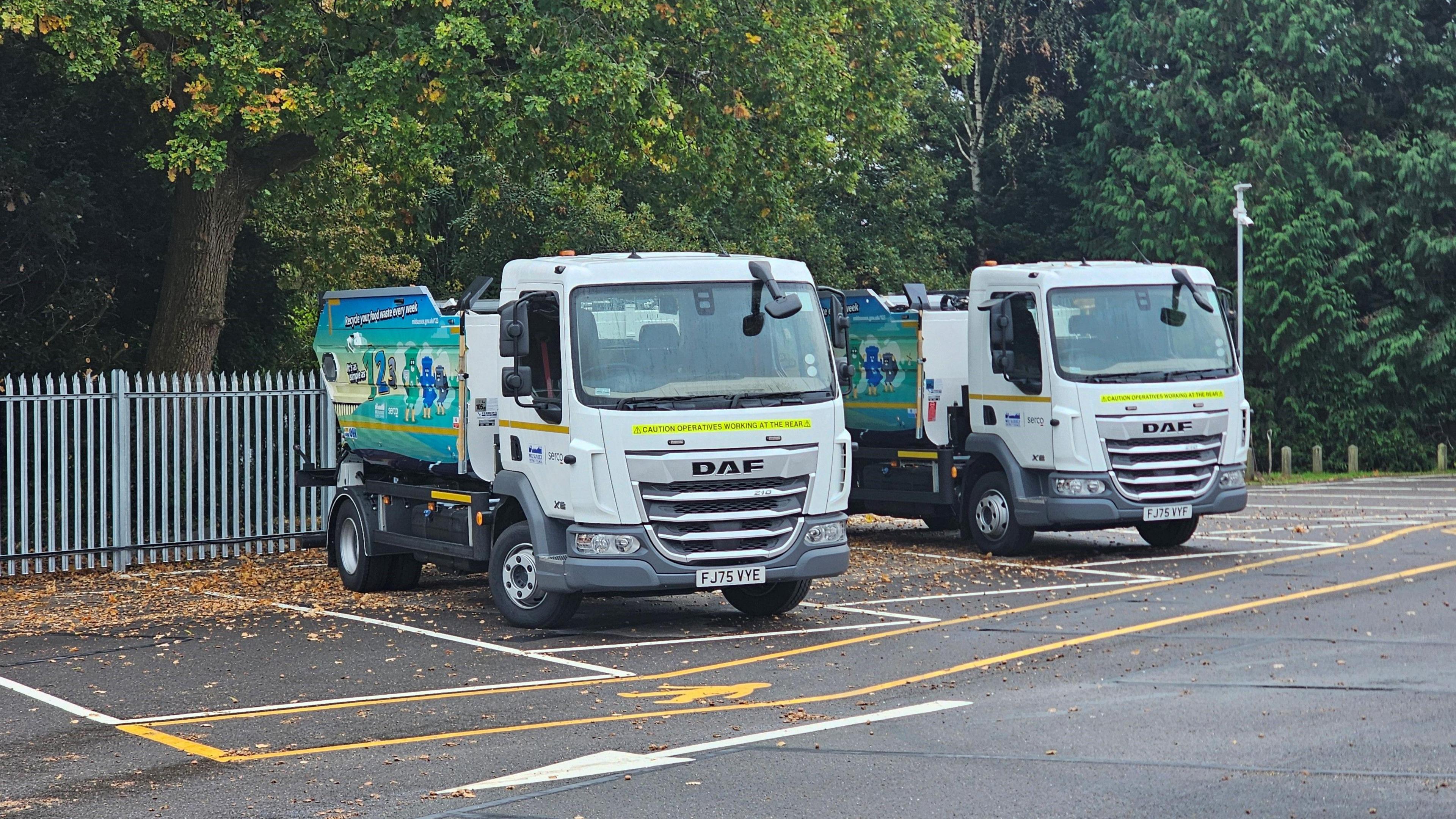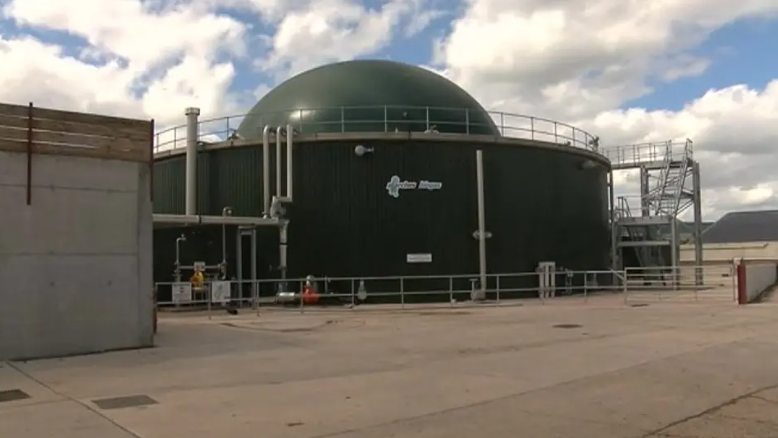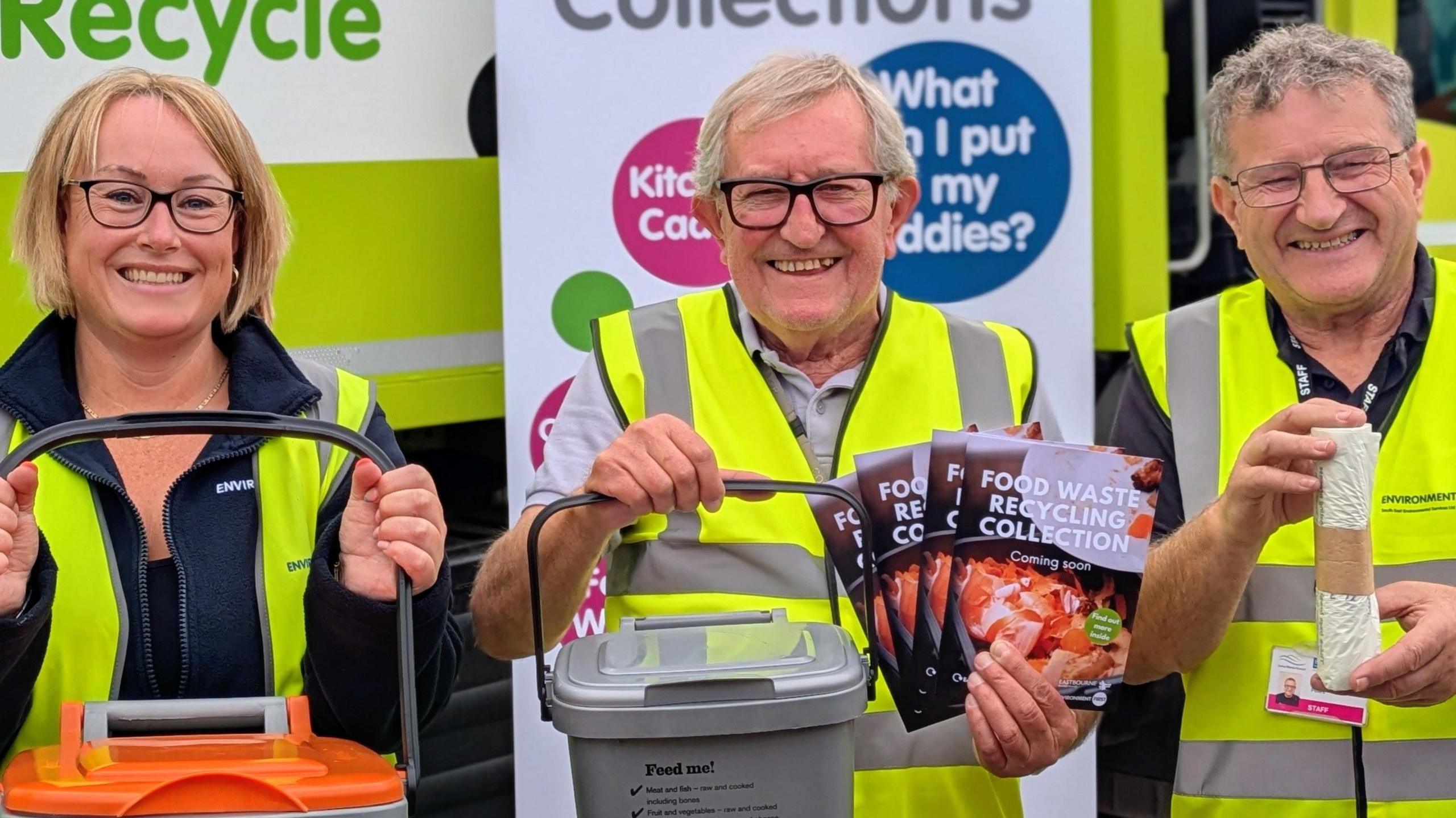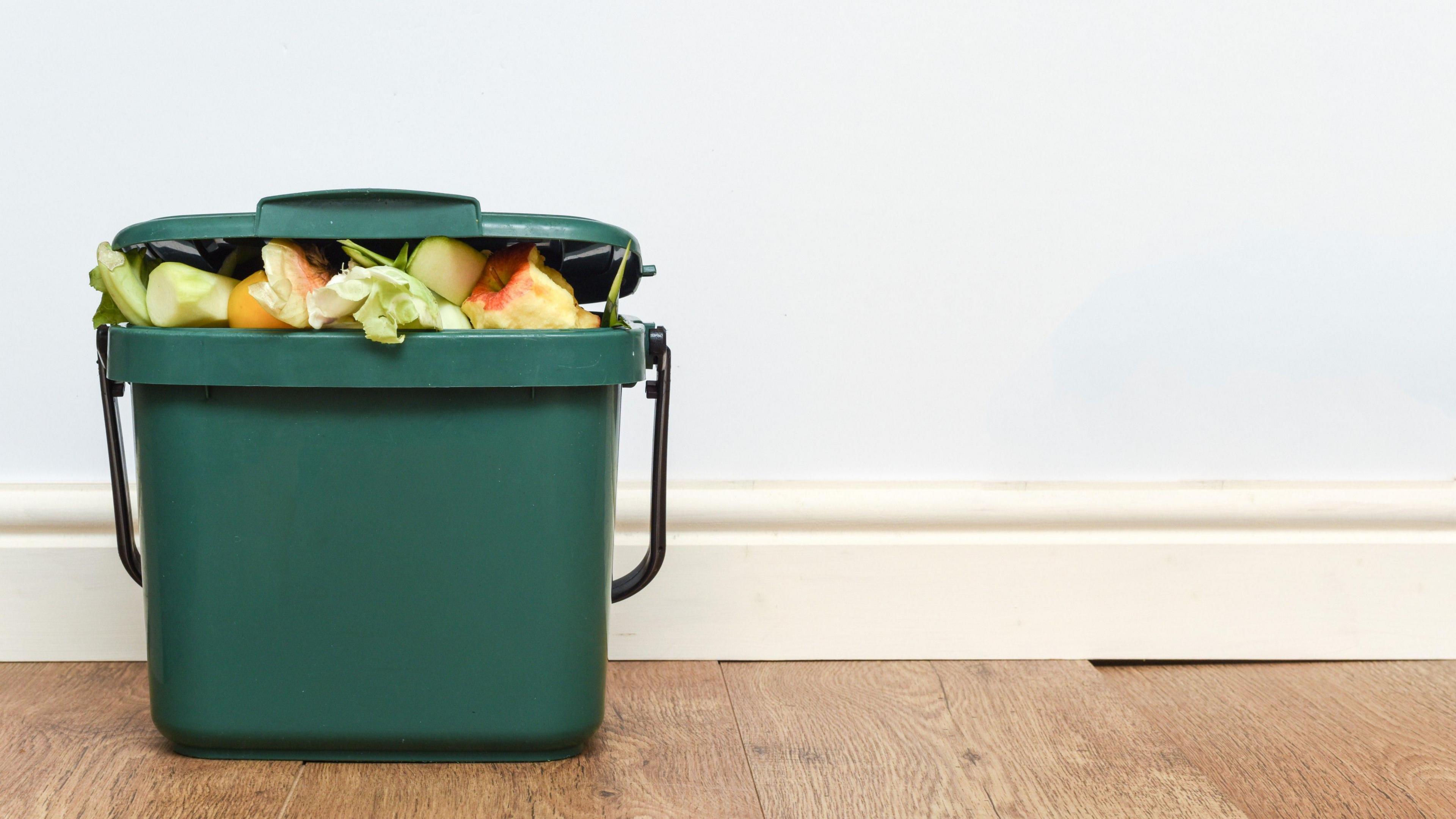Food waste scheme coming to 70,000 homes

Mid Sussex District Council is rolling out a weekly food waste collection service across its district
- Published
It is being called "one of the largest" projects Mid Sussex District Council has ever tackled – introducing weekly food waste collections to more than 70,000 homes.
The council will bring in weekly food waste collections to all of its households from 3 November.
The idea is to reduce how much general waste is sent to landfill because it is contaminated with food, while food waste will be converted into energy and turned into fertiliser for crops.
It also means general waste collections will now be every three weeks, while recycling collections will remain every two weeks.
But what do residents think of this new scheme?
"It's time that food was differentiated from other rubbish, we've been doing recycling for a long time. Everyone is used to that, it's brilliant," said Burgess Hill resident Lalie De Le Vingne.
She added: "If it helps grow crops, that's great."
Vignesh Srinivasan said: "I think it's good, it's nice to reduce the actual bulk of work for the waste management people.
"I feel more responsible in trying to segregate the waste."
Martin Davey said it was "well overdue".
"We've been talking about things like this for years, at least we're there now," he said.

An anaerobic digester in Wales
Another Burgess Hill resident, who asked not to be named, said they were "not overly impressed".
"I think why are people creating food waste in the first place?" they added.
The food waste will be sent to an anaerobic digester, which is a large sealed container that uses microorganisms to break down organic matter in the absence of oxygen, producing biogas and a nutrient-rich liquid called digestate.
The Conservative government said it would support councils across England with £295m funding to introduce weekly food waste collections in March last year. All councils must do this by the end of March 2026.
Councillor Chris Hobbs, Cabinet Member for Leisure and Customer Services, said: "This is an unprecedented initiative in the history of Mid Sussex District Council, impacting every resident in the district.
"With our partners at Serco, we are aiming to make the transition to the new collection schedules as simple as possible and are confident that residents will soon see the benefits of the new service."
Follow BBC Sussex on Facebook, external, on X, external, and on Instagram, external. Send your story ideas to southeasttoday@bbc.co.uk , external or WhatsApp us on 08081 002250.
Related topics
- Published5 October

- Published25 August 2024
